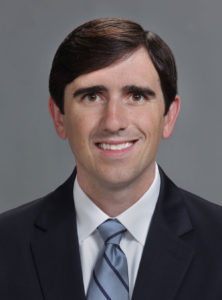ACL Knee Injury Specialist

Are you an athlete who participates in sports that involve jumping or quick stopping? If so, you may be at risk of tearing your anterior cruciate ligament, or ACL. An ACL tear is one of the most common injuries suffered by athletes. ACL tear specialist, Dr. Robert Boykin provides diagnosis and both surgical and nonsurgical treatment options for patients in Asheville who have suffered a torn ACL. Contact Dr. Boykin’s team today!
ACL Injury Overview
The knee is made up of four major ligaments which work together to stabilize the joint during movements such as walking, jumping, running, cutting, etc. These ligaments include the anterior cruciate ligament (ACL), posterior cruciate ligament (PCL), medial collateral ligament (MCL) and posterolateral corner complex (PLC). The ACL runs in the front of the knee (anterior) and crosses (cruciate) over the PCL. This ligament is responsible for keeping the shinbone (tibia) from sliding forward on the thighbone (femur) and providing stability for movements requiring rotation of the knee. When the ACL is injured, it is most frequently caused by a traumatic accident such as a sports injury, fall, or motor vehicle collision. The ACL can also be torn in certain cases with only a minimal injury, such as taking a misstep down stairs, if the knee happens to be in an inappropriate position. Dr. Robert Boykin specializes in the treatment of an ACL injury for patients in Asheville, Arden, Fletcher and surrounding communities.
Symptoms of an ACL Tear
Depending upon the severity of the injury, the ACL may be simply strained or completely torn. In the presence of an ACL injury, severe pain will most likely be the primary symptom, but other symptoms may be present, such as:
- Immediate swelling of the knee
- Limited motion
- Difficulty walking
- Instability of the knee (knee pops out of place or shifts)
- Hearing a pop at the time of injury (not always present)
How to Treat an ACL Tear
When Dr. Boykin suspects a patient may be suffering from an ACL injury he will begin the diagnosis and treatment process with a history and a detailed physical examination of the knee. In most cases, he will perform specific tests to evaluate the ACL such as the Lachman Test, Anterior Drawer test, and Pivot Shift test. He will also evaluate all of the other ligaments of the knee and meniscus cartilage (both on the inside and outside of the knee) to assess for additional injuries. An X-ray is required at the initial examination to look for a fracture or any other associated injury. In a majority of cases an MRI will also be ordered to evaluate the extent of injury to the ACL and to evaluate the other ligaments, both of the menisci, and cartilage of the knee. The ultimate goal in the treatment of an ACL injury is to regain stability and full mobility of the knee to allow patients to return to their pre-injury activities. In certain situations non-surgical treatment may be recommended including:
- Ice
- Heat
- Rest
- Elevation
- NSAID Pain relievers
- Physical Therapy
- ACL bracing
When non-surgical methods do not prove to be successful, if the injury is initially found to be severe or associated with other knee injuries, and when the patient’s lifestyle requires cutting and pivoting activities, Dr. Boykin may begin to discuss surgical methods of treatment for an ACL injury.
When to have ACL Surgery
Surgical treatment for a complete tear of the ACL consists of reconstructing (replacing) the ligament with a graft of a similar size. It is necessary to reconstruct the ligament rather than repair it because a full tear of the ACL has a limited ability to heal after a repair. Recent studies have demonstrated new methods for placement of the graft to restore the anatomy of the original ligament. Dr. Boykin will perform these techniques using arthroscopic knee surgery, which includes a small camera and specialized instruments to reconstruct the ligament. Either a graft from the patient or a donated graft will be used depending on a discussion between the patient and surgeon regarding the risks and benefits of each. One of the known complications of an ACL reconstruction surgery is stiffness of the knee after the procedure. Therefore in certain patients who present with a stiff and very swollen knee, Dr. Boykin will prescribe physical therapy before the surgery to help a patient regain their motion and reduce swelling. This has been shown to lead to a lower rate of post-operative stiffness.
If you are interested in receiving more information regarding arthroscopic treatment for an ACL knee injury or to schedule a consultation with Dr. Robert Boykin, orthopedic surgeon, please contact him at his office, serving Asheville, Arden, Fletcher and surrounding North Carolina communities.
